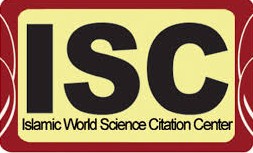أنماط الدبلوماسية الجديدة في ظل تكنولوجيا المعلومات والاتصالات
DOI:
https://doi.org/10.35246/jols.v36i4.521الكلمات المفتاحية:
تكنولوجية، معلومات، اتصالات، دبلوماسية، علاقات دوليةالملخص
أصبح مفهوم تكنولوجيا المعلومات والاتصالات بين الدول من المفاهيم المتعارف عليها, في المجتمع الدولي, وعلى ضوء ذلك قامت الدبلوماسية بدور هام وحيوي في مجال العلاقات الدولية, فمن خلالها تتم معالجة كافة الشؤون التي تهم بها مختلف الدول, والتوفيق بين مصالحها المتعارفة وكذلك وجهات النظر المتباينة, وفي ضوء ذلك أصبحت ثورة تكنولوجيا المعلومات والاتصالات عاملاً لا يمكن إغفال تأثيره على النظام الدولي والقانون الدولي بشكل عام, وأن هذا التطور الحاصل في تكنولوجيا المعلومات والاتصالات ساعد على تسهيل العلاقات ما بين الدول والمنظمات الدولية, وإحداث أشكال أو أساليب جديدة للدبلوماسيين.
التنزيلات
المراجع
اولاً: الكتب العربية
i. احمد فتحي سرور, نظرات في العلاقات الدولي, دار النهضة العربية, القاهرة, 1996.
ii. بودردابن منيرة, دور الدبلوماسية غير الرسمية في تنفيذ السياسة الخارجية, رسالة ماجستير مقدمة الى مجلس كلية الحقوق والعلوم السياسية- جامعة قسنطينة –منتوري- الجزائر, 2009.
iii. السيد أمين شلبي, نظرات في العلاقات الدولية, عالم الكتب للنشر والتوزيع, القاهـــرة, 2008.
iv. شفيق عبد الرزاق السامرائي, الدبلوماسيـــة, الجامعة المفتوحة, طرابلـــس, 2002.
v. أحمد محمود جمعة, الدبلوماسية في عصر العولمة, دار النهضة العربية, القاهرة, 2006.
vi. فيليب تايلور, الدبلوماسية ومكانتها في السياسة الخارجية, مجلة الدبلوماسي, العدد 52, معهد الدراسات الدبلوماسية, السعودية, 2010.
vii. عباس مصطفى, أضواء على الدبلوماسية الشعبية, المجلة السودانية, العدد4, السودان, 2005.
viii. طيايبة ساعد, الدبلوماسية العامة الرقمية قوة ناعمة جديدة, مجلة الأستاذ الباحث للدراسات القانونية والسياسية, العدد الثامن, المجلد الاول, الجزائر, 2017.
ix. عطا محمد صالح زهرة, في النظرية الدبلوماسية, ط3, دار مجدلاوي للنشر, عمان, 2004.
x. جيفري الين بيجمان, الدبلوماسية المعاصرة التمثيل والاتصال في دنيا العولمة, ترجمة محمد صفوت حسن, دار الفجر للنشر والتوزيع, القاهرة, 2014.
xi. الاء الحماصنة, الدبلوماسية الرقمية وتأثيرها على السياسة الخارجية العلاقات الامريكية الايرانية نموذجاً, الاكاديمية الدولية للتدريب والتطوير, سوريا, 2016.
xii. معاذ العامودي, الدبلوماسية الرقمية ومكانتها في السياسة الخارجية الفلسطينية, جامعة بيرزيت, فلسطين, 2018.
xiii. خالد آل خليفة, دبلوماسية تويتر, مركز رصد للدراسات والأبحاث السياسية للنشر, البحرين, 2020.
xiv. محمد عدنان محمود, الدبلوماسية في العصر الرقمي والتطور النوعي في الدبلوماسية التقليدية, مركز البيان للدراسات والتخطيط, بغداد, 2014.
xv. مذكرات هيلاري كلنتون خيارات صعبة, ترجمة ميراي يونس, ط5, شركة المطبوعات للتوزيع والنشر, بيروت, 2018.
xvi. محمد صالح محمد, الدبلوماسية في العصر الرقمي, دراسة لتطور الدبلوماسية في القرن الحادي والعشرون, وزارة شؤون الاعلام البحريني, البحرين, 2016.
xvii. وائل عبد العال, الدبلوماسية الرقمية ومكانتها في السياسة الخارجية الفلسطينية, جامعة بيرزيت, مركز تطوير الاعلام, فلسطين, 2018.
xviii. الاخضر الابراهيمي وأخرون, الدبلوماسية العربية في عالم متغير, بحوث ومناقشات الندوة الفكرية, مركز دراسات الوحدة العربية, ط2, دار الخليج للطباعة والنشر, بيروت, 2008.
ثانياً: المصادر الانكليزية
i. sonya heguacy, Dialogue with the Islamic World Dialog mit der islamischen Wel, Edition Diplomatie, a publication series of the Federal Foreign Office Eine Schriftenreihe Auswrtigen Amts.
ثالثاً: الرسائل
i. سهام عثمان إبراهيم, دور الدبلوماسية الشعبية في السودان تجربة مجلس الصداقة الشعبية, رسالة ماجستير مقدمة الى مجلس كلية الاقتصاد والعلوم السياسية- جامعة أم درمان الاسلامية, الجزائر, 2006.
رابعاً: البحوث
i. وليد خلف الله محمد, الدبلوماسية الرقمية في المواقع الالكترونية الرسمية لوزارتي الخارجية المصرية والامريكية ودورها في تقديم صورة الدولة, المجلة العلمية لبحوث العلاقات العامة والإعلان, كلية الاعلام, العدد11, جامعة القاهرة, القاهرة, 2017.
ii. أيمن إبراهيم الدسوقي, الدبلوماسية في عصر العولمة بين الاستمرارية والتغير, مجلة كلية الاقتصاد والعلوم السياسية, المجلد 20, العدد1, جامعة القاهرة, القاهرة, 2020.
iii. طيايبة ساعد, مستقبل الممارسة الدبلوماسية في ظل العصر الرقمي, مجلة الاستاذ الباحث للدراسات القانونية والسياسية, المجلد 4, العدد2, جامعة محمد بوضياف, الجزائر, 2019.
iv. صادق الفقيه, العلاقات الدولية المتغيرة : قضايا دبلوماسية القرن الحادي والعشرون, مجلة مركز العلاقات الدولية, العدد الخامس, 2017.
خامساً: المواقع الالكترونية
i. عماد المديفر, الدبلوماسية الشعبية, صحيفة الجزيرة, الموقع الالكتروني, https://www.al-jazirah.com/2018/20181228/ar2.htm تاريخ الدخول 2/4/2021.
ii. Olubukola s. adesina: foreign policy in an era of digital diplomacy, www. tandfonline.com , p 2. تاريخ الدخول 20/4/2021.
التنزيلات
منشور
إصدار
القسم
الرخصة

هذا العمل مرخص بموجب Creative Commons Attribution 4.0 International License.
-
:حقوق الطبع والنشر والترخيص
بالنسبة لجميع البحوث المنشورة في مجلة العلوم القانونية، يحتفظ الباحثون بحقوق النشر. يتم ترخيص البحوث بموجب ترخيص Creative Commons CC BY 4.0 المفتوح ، مما يعني أنه يجوز لأي شخص تنزيل البحث وقراءته مجانًا. بالإضافة إلى ذلك ، يجوز إعادة استخدام البحث واقتباسه شريطة أن يتم الاستشهاد المصدر المنشور الأصلي. تتيح هذه الشروط الاستخدام الأقصى لعمل الباحث وعرضه.:إعادة إنتاج البحوث المنشورة من الناشرين الآخرين
من الضروري للغاية أن يحصل الباحثون على إذن لإعادة إنتاج أي بحث منشورة (أشكال أو مخططات أو جداول أو أي مقتطفات من نص) لا يدخل في نطاق الملكية العامة أو لا يملكون حقوق نشرها. يجب أن يطلب الباحثون إذنًا من مؤلف حقوق النشر (عادة ما يكون الناشر).يطلب الإذن في الحالات التالية:
بحوثك الخاصة المنشورة من قِبل ناشرين آخرين ولم تحتفظ بحقوق النشر الخاصة بها.
مقتطفات كبيرة من بحوث أي شخص أو سلسلة من البحوث المنشورة.
استخدم الجداول والرسوم البيانية والمخططات والمخططات والأعمال الفنية إذا لم يتم التعديل عليها.
الصور الفوتوغرافية التي لا تملك حقوق لنشرها.لا يطلب الإذن في الحالات التالية:
إعادة بناء الجدول الخاص بك مع البيانات المنشورة بالفعل في مكان آخر. يرجى ملاحظة أنه في هذه الحالة يجب عليك ذكر مصدر البيانات في شكل "بيانات من ..." أو "مقتبس من ...".
تعتبر عروض الأسعار القصيرة معقولة الاستخدام العادل ، وبالتالي لا تتطلب إذنًا.
الرسوم البيانية، الرسوم البيانية، المخططات، الأعمال الفنية التي أعاد الباحث رسمها بالكامل والتي تم تغييرها بشكل ملحوظ إلى درجة لا تتطلب الاعتراف.
الحصول على إذن
لتجنب التأخير غير الضروري في عملية النشر ، يجب أن تبدأ في الحصول على أذونات في أقرب وقت ممكن. لا يمكن لمجلة العلوم القانونية نشر بحث مقتبس من منشورات أخرى دون إذن.قد يمنحك مالك حقوق الطبع والنشر تعليمات بشأن شكل الإقرار الواجب اتباعه لتوثيق عمله ؛ بخلاف ذلك ، اتبع النمط: "مستنسخ بإذن من [المؤلف] ، [كتاب / المجلة] ؛ نشره [الناشر] ، [السنة]." في نهاية شرح الجدول ، الشكل أو المخطط.











